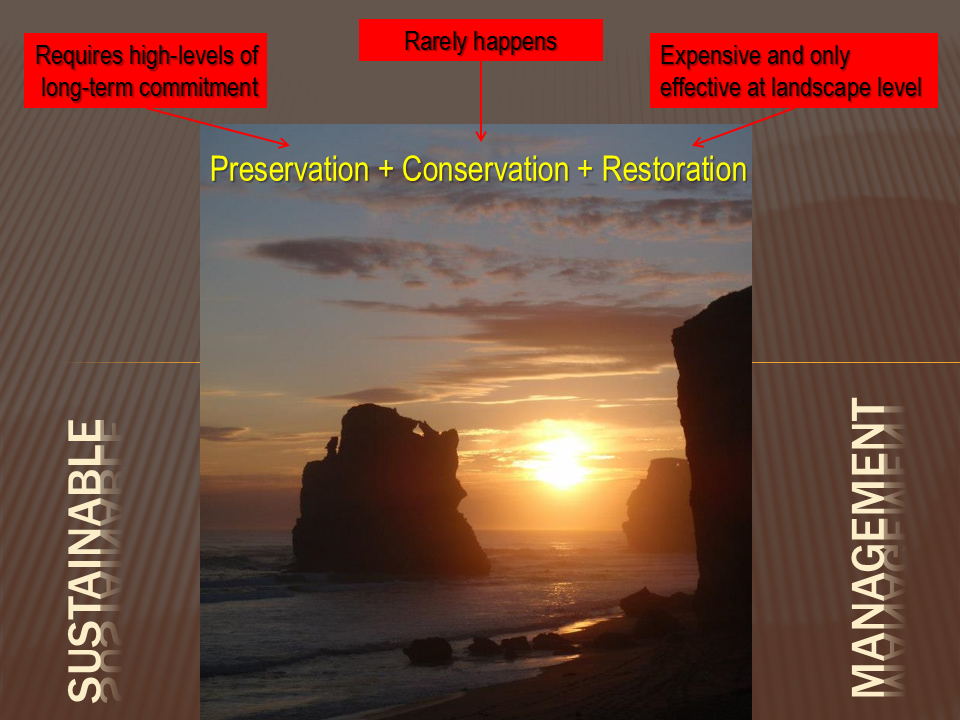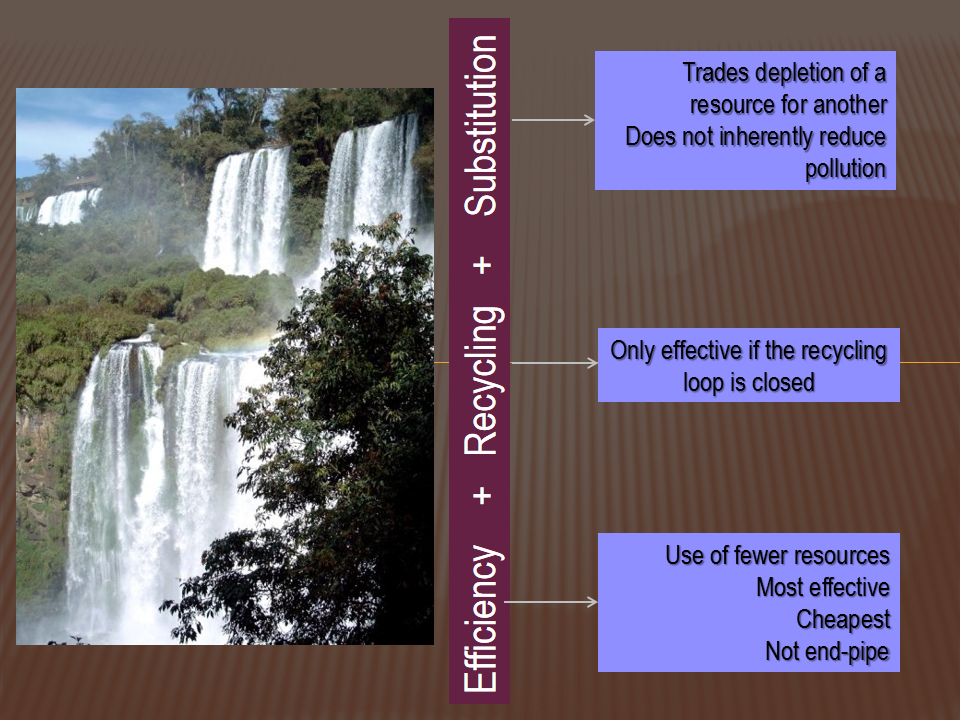There are some philosophical differences between conventional natural resource management and sustainable resource management. Sustainable management requires plans for preservation, conservation, and restoration of natural resources and their systems (Figure 1.5).
Sustainable Management and Development differs from traditional practices in that it:
- considers the benefits of NOT using a resource;
- considers the direct AND indirect value of a resource;
- considers that savings that reduced resource use brings (i.e., lower pollution and waste management costs).

Click for text description.
Techniques for Sustainable Management and Development

Click for a text description.
As summarized in Figure 1.6, efficiency is the most effective and cheapest technique for sustainable management of natural resources. However, it requires the largest amount of planning.
50% of communities in the U.S. have access to recycling programs. However, recycling is only effective if recycled materials and products are economically competitive and qualitatively comparable to products created from virgin sources. In other words, the "recycling loop" needs to be closed.
Presently, there are few economic incentives to use recycled products:
- Low demand for more expensive recycled goods
- Few companies are willing to buy returned items to be recycled
- Returned items are taken to the landfill
Throughout history, resource depletion has been addressed by substitution. For example, after large portions of forests were used as biofuels, coal, and other fossil fuels became widely consumed. Over reliance on substitution has a negative environmental impact because it:
- trades depletion of one resource for another;
- does not inherently reduce pollution.
